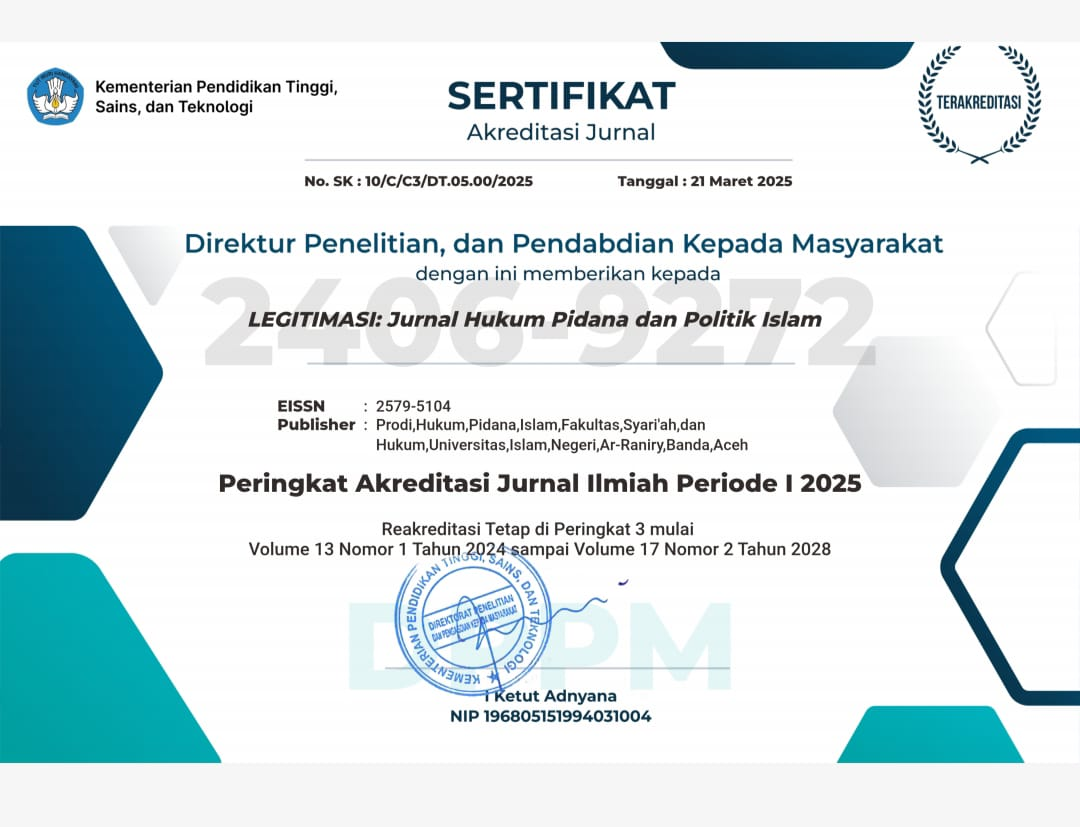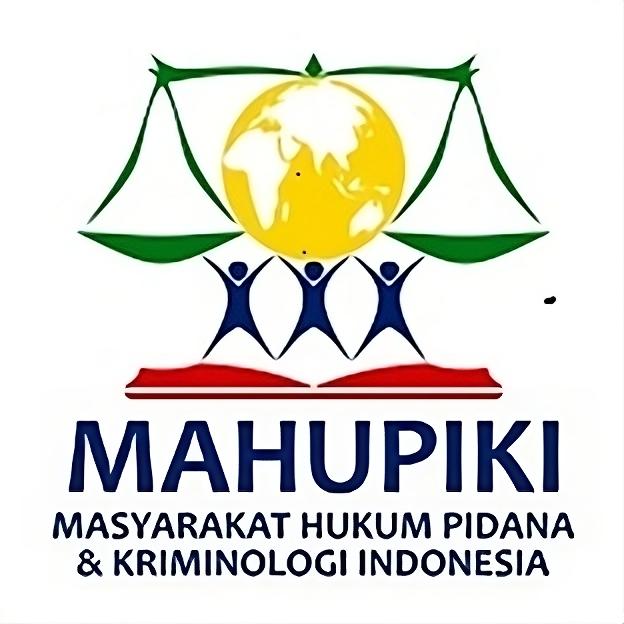Diskresi dan Negara Hukum: Mewujudkan Hukum Berkeadilan Masyarakat
DOI:
https://doi.org/10.22373/legitimasi.v11i1.12458Keywords:
State Law, Discretion, Justice, Government, Civil LawAbstract
Abstract: This study analyzes the discretionary policy in the civil law system prevailing in Indonesia. In a state law system, implementing laws and regulations are often faced with not applying the rule of law and even legal decisions occur. The result of the failure that occurred in realizing government programs aimed at the welfare of the community. On the one hand, state officials, state employees, and state officials are not allowed to act differently from the legal rules that have been passed by the state. But on the other hand, the desire to uphold justice and the welfare of the people sometimes clashes with the rules, procedures, and legal provisions that already exist legally. the advantages of the positive and negative sides of the Civil Law-based legal system, countries that adhere to the Civil Law system then introduce the concept of discretion. This study uses a normative-juridical method. The results of the analysis of literature data show that through discretionary policies, governments, state officials, and state administrators can guarantee people's welfare, justice, and truth.
Abstrak: Studi ini menganalisis kebijakan diskresi dalam sistem hukum sipil yang berlaku di Indonesia. Dalam sistem negara hukum, pelaksana peraturan perundang-undangan sering dihadapkan pada tidak tegasnya aturan hukum dan bahkan terjadi kekosongan hukum. Akibatnya terjadi kesulitan dalam merealisasikan program pemerintah yang bertujuan untuk mensejahterakan masyarakat. Di satu sisi pejabat negara, pegawai negara, dan penyelenggara negara tidak diperkenankan bertindak berbeda dari aturan hukum yang sudah disahkan oleh negara. Namun sisi lain, keinginan untuk mempercepat keadilan dan kesejahteraan rakyat terkadang berbenturan dengan aturan, prosedur, dan ketentuan hukum yang sudah memiliki daya ikat secara legalistik. Menyadari sisi positif dan negatif dari sistem hukum berbasis Civil Law tersebut, negara-negara yang menganut sistem Civil Law kemudian memperkenalkan konsep tentang diskresi. Studi ini menggunakan metode normatif-yuridis. Hasil analisis data kepustakaan menunjukkan bahwa melalui kebijakan diskresi, para pemerintah, pejabat negara, dan penyelenggara negara dapat mempercepat kesejahteraan rakyat, keadilan, dan kebenaran.
References
Hamdan Zoelva. Mahkamah Konstitusi Dan Masa Depan Negara Hukum Demokrasi Indonesia, Dalam Beberapa Aspek Hukum Tata Negara, Hukum Pidana, Dan Hukum Islam. Jakarta: Prenada Media Group, 2012.
Ilmar, Aminuddin. Hukum Tata Pemerintahan. Jakarta: Prenada Media Group, 2014.
Marbun, Moh. Mahfud. Pokok-Pokok Hukum Administrasi Negara. Cet. Ke-6. Liberty: Liberty, 2011.
Marzuki, Peter Mahmud. Pengantar Ilmu Hukum. Jakarta: Kencana Prenada Media, 2008.
Muchsan. Sistem Pengwasan Terhadap Perbuatan Aparat Pemerintah Dan Peradilan Tata Usaha Negara Di Indonesia. Yogyakarta: Liberty, 2007.
Murdan. “Harmonisasi Hukum Adat, Agama, Dan Negara Dalam Budaya Perkawinan Masyarakat Islam Indonesia Belakangan.” Asy-Syir’ah: Jurnal Ilmu Syari’ah Dan Hukum 50, no. 2 (2016): 505–35.
———. “Tesis Pascasarjana Fakultas Hukum, Universitas Gadjah Mada.” Universitas Gadjah Mada, 2018.
Rasjidi, B. Arief Sidarta. Filsafat Hukum Mazhab Dan Refleksi. Cet. Ke-2. Bandung: Remaja Rosdakarya Offset, 1994.
Ridwan. Hukum Administrasi Negara. Cet. Ke-7. Jakarta: Raja Wali Press, 2011.
Rohayana, Ade Dedi. Ilmu Qawaid Fiqhiyyah. Jakarta: Gaya Media Pratama, 2008.
Sumardi, Dedy, Ratno Lukito, and Moch Nur Ichwan. “Legal Pluralism within the Space of Sharia: Interlegality of Criminal Law Traditions in Aceh, Indonesia.” Samarah 5, no. 1 (2021): 426–49. https://doi.org/10.22373/sjhk.v5i1.9303.
T., Titik Triwulan, and Ismu Gunandi Widodo. Hukum Tata Usaha Negara Dan Hukum Acara Peradilan Tata Usaha Negara Indonesia. Cet. Ke-2. Jakarta: Kencana Prenada Media, 2014.
Teguh Prasetyo, Abdul Halim Barkatullah. Ilmu Hukum Dan Filsafat Hukum. Yogyakarta: Pustaka Pelajar, 2011.
Downloads
Published
Issue
Section
License
Authors who publish in Legitimasi: Jurnal Hukum Pidana dan Politik Hukum agree to the following terms:
- Authors retain copyright and grant the journal right of first publication with the work simultaneously licensed Attribution-ShareAlike 4.0 International (CC BY-SA 4.0) that allows others to share the work with an acknowledgment of the work's authorship and initial publication in this journal.
- Authors are able to enter into separate, additional contractual arrangements for the non-exclusive distribution of the journal's published version of the work (e.g., post it to an institutional repository or publish it in a book), with an acknowledgment of its initial publication in this journal.
- Authors are permitted and encouraged to post their work online (e.g., in institutional repositories or on their website) prior to and during the submission process, as it can lead to productive exchanges, as well as earlier and greater citation of published work. (See The Effect of Open Acces)












